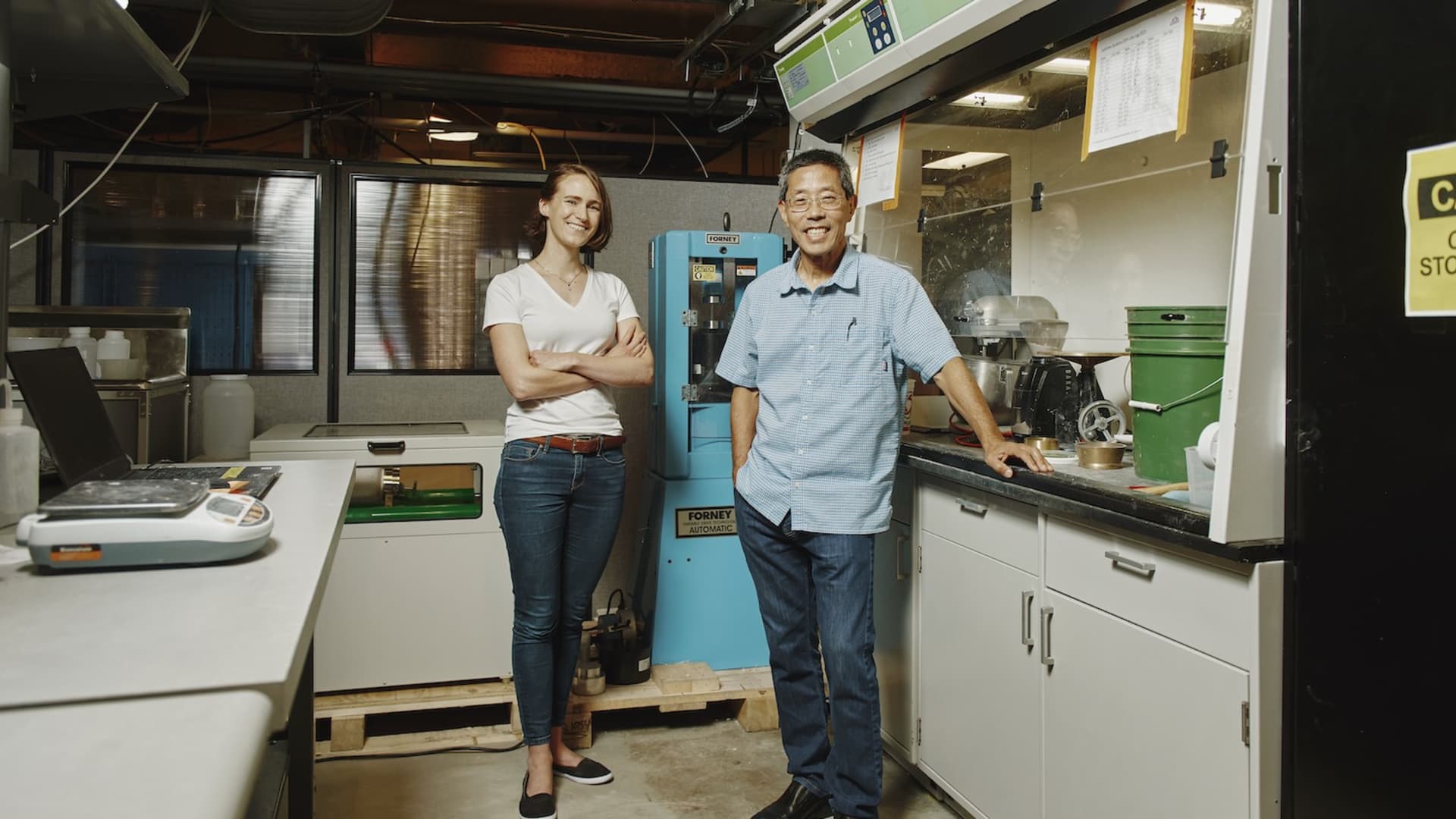Leah Ellis and Yet-Ming Chiang
Photo courtesy The Engine
While Leah Ellis was earning her doctorate at Dalhousie University in Nova Scotia, she was part of a team that did battery research for Tesla. After she graduated, her budding career took an unusual turn.
“I could have gotten an easier job with my background in battery materials — a lot of my colleagues go work for Tesla or Apple. I could have done that, … and I would have made more money at first,” Ellis, 33, told CNBC by phone Wednesday.
Instead, Ellis applied for and won a prestigious Banting Postdoctoral Fellowship that granted her two years’ salary to work with whomever she wanted.
Ellis took her Ph.D. in electrochemistry and went to work for Yet-Ming Chiang, a renowned material sciences professor at Massachusetts Institute of Technology who is also a serial clean-tech entrepreneur. Chiang co-founded companies such as American Superconductor Corporation, A123 Systems, Desktop Metal, Form Energy and 24M Technologies.
Now Ellis is working to scale up a new climate-conscious process of making cement, one powered with electrochemistry instead of fossil fuel-powered heat.
Making cement using electrochemistry was Chiang’s idea, Ellis told CNBC in Boston at the end of May. Ellis said she worked with Chiang in 2018, just after he had started Form Energy, a long-duration battery company, and he was thinking about the abundant intermittent energy that was being generated by renewable energy sources such as wind.
“Sometimes people will pay you to take energy off their hands,” Ellis told CNBC. “Instead of putting that energy in a battery, what if we can use this extra low-cost renewable energy to make something that would otherwise be very carbon-intensive? And then the first on the list of things that are carbon-intensive — it’s cement.”
Cement is a necessary ingredient in concrete, which is the cornerstone of global construction and infrastructure, because it’s cheap, strong and durable. Four billion metric tons,…
Read the full article here

Leave a Reply